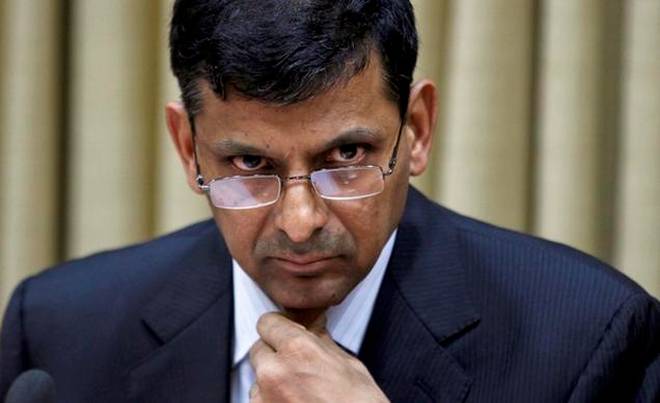NITI Aayog vice-chairman, Rajiv Kumar has completely rebutted the popular imagination in media and policy circles that demonetization caused economic slowdown in the country. He presented the view that ‘Non Performing Assets (NPAs) not demonetization’ was the real reason behind economic slowdown which started two quarters before demonetization was announced. “GDP growth peaked at 9.2 per cent in January to March 2016 but declined successively for six quarters. NPAs rose exponentially to Rs 10.5 lakh crore — for loans given out during 2010-11 to 2013-14 — and commercial banks virtually stopped lending to industry. Medium and small industry was particularly hit” tweeted Rajiv Kumar.
Raghuram Rajan took over office in September, 2013. He was very hawkish on cleanup of banks. RBI started asset quality review (AQR) in December 2015 to ensure that lending practices become healthy. It also downgraded 150 borrowers as NPAs under the new mechanism to indentify NPAs. “Our intent is to have clean and fully provisioned bank balance sheets by March 2017” said Raghuram Rajan in February 2016. This is not to claim that Raghuram Rajan did anything with wrong intentions, bank cleanup was necessary for healthy economy and good lending practices. Media started name calling just after Rajiv Kumar’s statement and Kumar was quick to clarify that this is not about the person but policies. “My views on GDP’s decline being unrelated to solely demonetization and having begun way before with stricter norms of NPA by RBI under Mr Rajan are fact-based and self-explanatory, but some misleading headlines have coerced me to reiterate that the discussion is on policies not people.” tweeted Kumar.
GDP growth peaked at 9.2% in Jan- Mar 2016 but declined successively for 6 quarters. NPAs rose exponentially to 10.5 Lakh crore for loan’s given out during 2010/11-13/14 to rise & commercial banks virtually stopped lending to industry. Medium & small industry was particularly hit pic.twitter.com/MRKBA6eQnj
— Rajiv Kumar (@RajivKumar1) September 3, 2018
My views on GDP’s decline being unrelated to solely demonetisation & having begun way before with stricter norms of NPA by RBI under Mr Rajan R fact-based & self-explanatory but some misleading headlines have coerced me to reiterate that the discussion is on policies not people.
— Rajiv Kumar (@RajivKumar1) September 3, 2018
The economic growth slowed down due to decreased lending, especially in Micro, Small and Medium Enterprises (MSME) sector. Big companies have many other source of capital like foreign direct investment, foreign portfolio investors (FPIs), foreign institutional investors (FIIs), debentures, and equities. But MSME sector companies are largely dependent on loans from banks for capital requirements. The hawkish policy for NPAs cleanup made loans scarce and this led to slowdown in economy and especially in MSME sector. Rajiv Kumar said rising NPAs during the tenure of Raghuram Rajan stalled credit disbursal to the industry and in the case of the micro, small and medium enterprises (MSME) industry, credit actually shrank. The reduced lending does not only affect MSME but big industries too because very few businesses in the country have access to alternative sources of capital. “Even to the large industry, the growth of credit came down to one per cent and two and a half per cent in some months, and even negative in some quarters. Never had we seen such a continuous and persistent year upon year deleveraging of credit, this is the cause of slowdown of growth.” Kumar said.
Rajiv Kumar defended demonetization by saying it was needed to reintroduce probity and integrity in our economic system and claimed that economic slowdown was continuation of the trend before demonetization. “This (decline in growth) was just simply in continuation of a trend and not because of the shock of demonetization as has been claimed. I think there is no evidence to prove that there was a direct link between demonetization and slowdown in the growth rate” added Kumar. Reemphasizing the fact that demonetization cleaned up economy Kumar said “I would do it any day to cleanse my economy, to formalize it, (and) to improve tax compliance behavior.”
